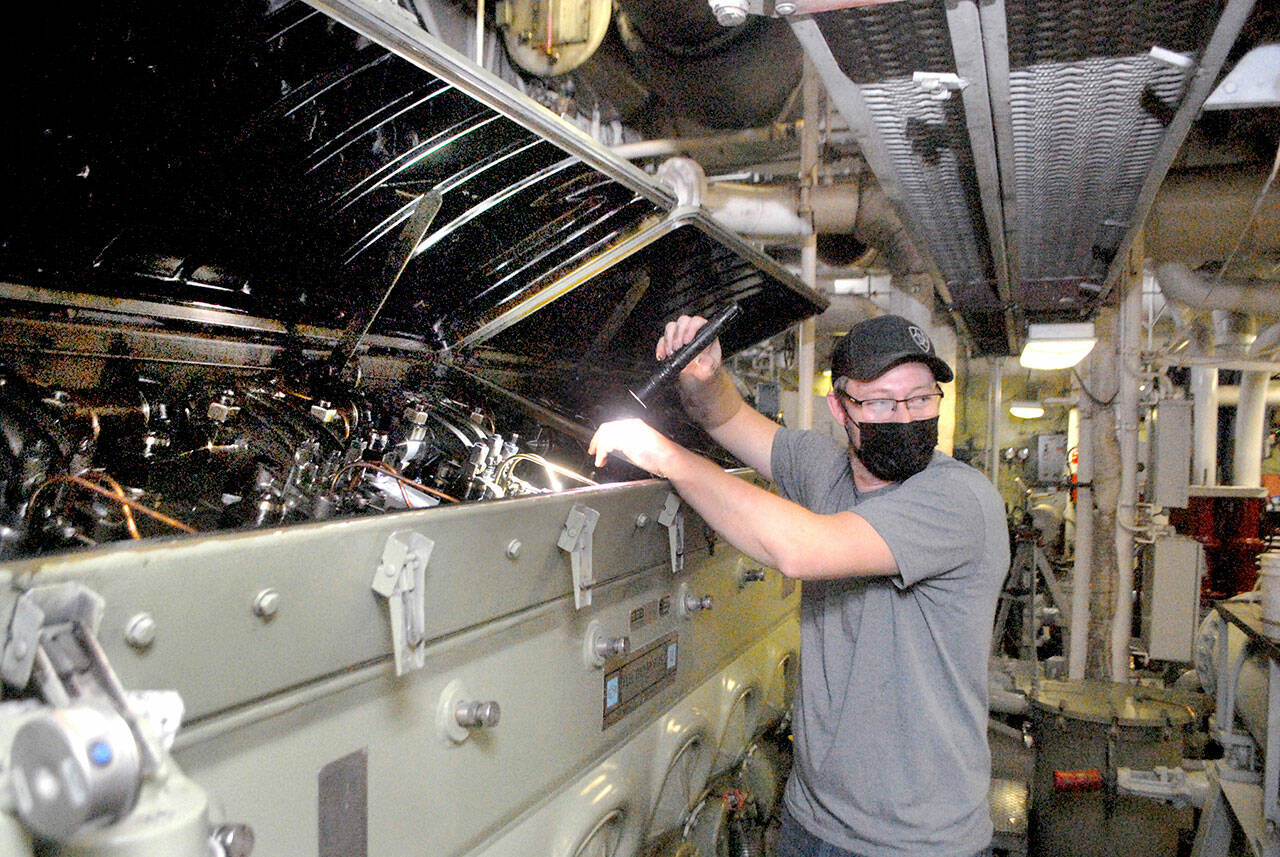PORT ANGELES — The MV Coho’s horn will blast for real this week, beckoning caged Canadian snowbirds.
Black Ball Ferry Line’s passenger vessel will announce its presence before setting sail to Victoria at 8:20 a.m. Monday after having made tiny, tantalizing dry runs into Port Angeles Harbor for what seems like forever.
Rendered static by international border restrictions caused by the COVID-19 pandemic, the Coho has been stalled at its Port of Port Angeles dock off downtown’s Railroad Avenue, empty of passengers, since March 30, 2020.
That changes Monday morning, followed by 10:30 a.m. and 4 p.m. sailings from the B.C.’s Inner Harbour that are fully booked all this week and 70 percent occupied for the week of Nov. 21, co-owner Ryan Malane said Friday.
“It’s good news to get going again,” he said
Black Ball’s Oct. 19 announcement resuming service generated 1,000 Canadian bookings the first day on the 110-vehicle vessel — or about 100, depending on the RVs on board.
Malane said for the time being, the Victoria-to-Port Angeles sailing will be chock full of Canadians long overdue for their annual fix of warm U.S. climes.
The Port Angeles Chamber of Commerce is planning a mini-sendoff for the 8:20 a.m. trip to Victoria, when few U.S. travelers are expected due to COVID-19 testing restrictions, and a bigger celebration when it returns at noon filled with B.C. passenger, chamber Executive Director Marc Abshire said.
Monday marks the date set by the U.S. government giving permission for Canadian travelers who are fully vaccinated to start visiting the U.S. That’s all they need, coronavirus-wise, along with proof of same.
Not so going south to north — from Port Angeles to Victoria.
Canada opened its borders in August to fully vaccinated Americans but makes them take an expensive polymerase chain reaction (PCR) test — $175 at Jim’s Pharmacy — to prove in extra measure they are COVID-free.
That’s a roadblock for most U.S. travelers, Abshire and Malane said.
“That is unfortunate that we are not seeing much volume going northbound,” Malane said. “There is some, but it’s certainly not robust.”
Canadians have a harder time of it returning home. They must submit to the same regimen as Americans visiting their country unless they return within 72 hours of the test being taken.
Malane, whose company offers trip packages at both destinations, said visitors from Port Angeles’ big-sister city across the Strait won’t just be passing through.
“They’ve booked quite a number of hotel rooms locally with people who are staying for a night, and of course, they also book independently,” he said.
“I think we’ll see a steady southbound demand for Canadians coming into the U.S.
“I think the northbound demand will largely be determined by the testing requirements, and thankfully we have a local company that does the testing that allows for people to get the test [results] the same day, and that’s a relief.”
Malane compared Black Ball’s operations to those of the Peace Bridge, a vehicular toll crossing over the Niagara River between downtown Buffalo, New York, and Fort Erie, Ontario.
“They are expecting the same thing, about 20 percent capacity northbound,” he said.
Americans traveling to Canada must register on the Canadian government’s ArriveCAN page at canada.ca. with information made available to authorities when U.S. citizens show their passports, Malane said. Proof of COVID-19 vaccination also is required.
The startup has meant Black Ball can bring back 70-80 of its 120 — including seasonal — employees.
The company will ramp up service this week by continuing to spend a $3.1 million Coronavirus Economic Relief for Transportation Services grant that must be used within one year of receiving it.
“Without the support of our city, county, state and federal assistance, we wouldn’t be able to have this service restart,” Malane said.
________
Senior Staff Writer Paul Gottlieb can be reached at 360-452-2345, ext. 55650, or at pgottlieb@peninsuladailynews.com.

